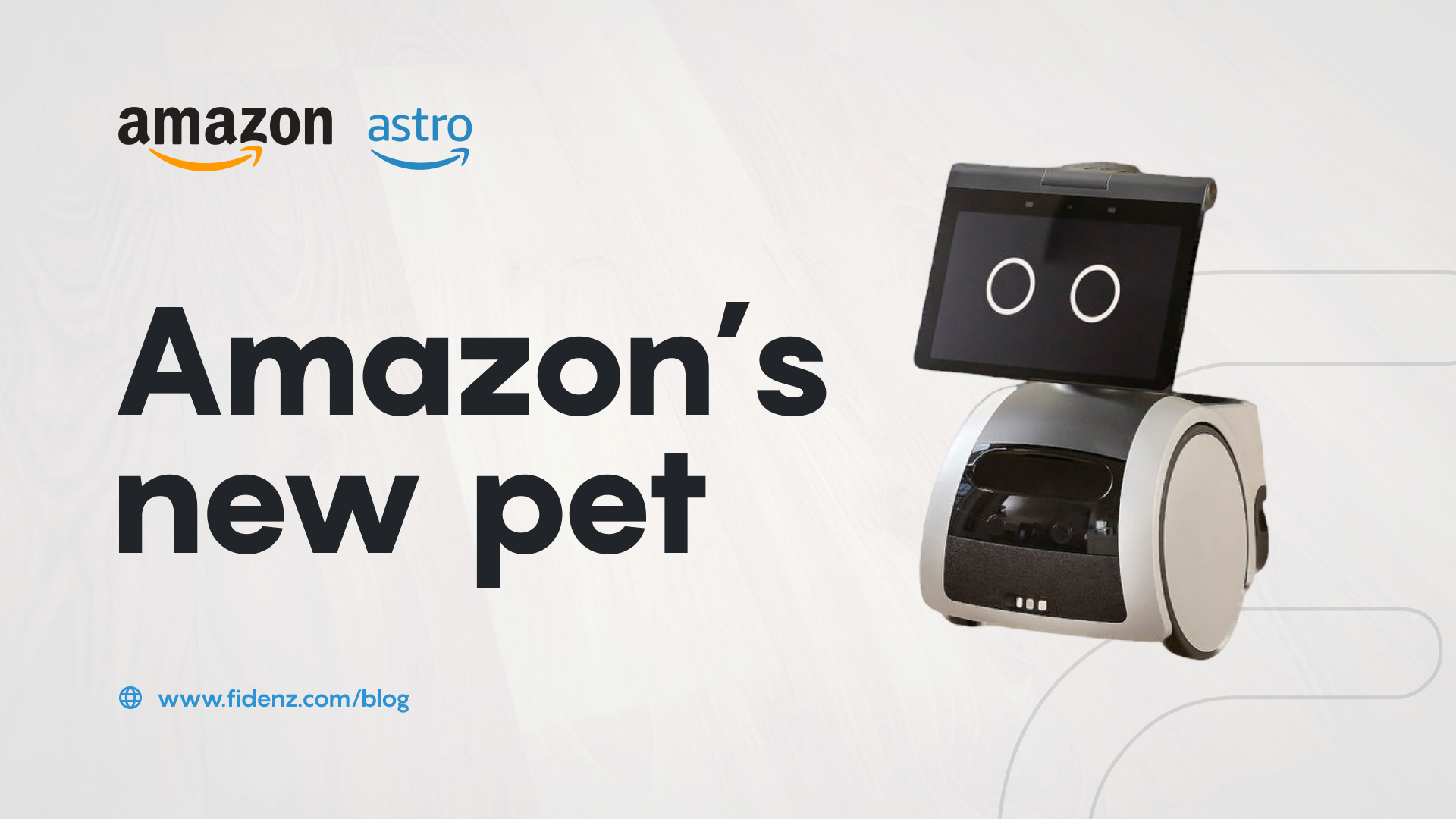AMAZON’S NEW PET – ASTRO

Amazon’s new pet Astro is a part of its Day 1 Editions program, with limited availability. Astro is a $1000 worth invasion-only program with a robust system and numerous use cases. While many of these are related to security, remote care and easy access, the robot also plays a role in entertainment. It carries a little carrying tray, a USB port for extensions, and a periscope that can pop out to see the counters. Astro working with Alexa together is another plus point for all the existing Alexa users to try out a combo and enhance their user experience.
The first-generation tech piece is an impressive feat that has tremendous potential. Given below are the prominent highlighted use cases of Astro that can help to improve the day-to-day life of its users.
- Home Monitoring - Astro can be an autonomous home-security system that can wander around the house. The robot has the ability to patrol a home, detect unidentified people, and send alerts. When you turn on the ‘away mode’, Astro can take care of your premises, ensuring its safety, and send alerts when it hears sounds like glass breaking or similar.
- Reminders & Updates - Astro can check on behalf of you whether the back door is open, whether you have left the stove on, or to check why the dog is barking at midnight without you having to leave your bed.
- Remote Care - For anyone who needs remote care can ask Astri to set and deliver reminders. There is a ‘Drop In’ option to stay connected. Together with Alexa, Astro can make work easy for those who are differently-abled or have mobility challenges.
- Entertainment - “Astro beatbox” or “what’s your favorite animal?” are top items that Amazon suggests as potential use cases that Amazon indicates in terms of fun things that Astro can provide and be closer to users as a pet than a machine.
Anthony Robson, the principal product manager for robotic technologies and consumer robotics at Amazon, insisted on having some level of extensibility. He further states, ‘We’re going to learn so much about every home — and every home is going to be different and have different needs. We have customers working in their home offices on either side of the house, sending things to each other using their Astro. We are learning, we are listening, and we are adapting. We will extend Astro’s capabilities as we learn from customers’.
When it comes to the drawback or the things the team wasn’t able to prioritize for launch, Astro not being able to climb stairs and its speed can be taken as the most significant. However, this is because of the need to keep the product simple and handy from a practical perspective. Also, adding the features such as climbing stairs can make it more complex, thus increasing the costs.
Moreover, the developer toolkit for the Astro robot is on its way and has not been launched yet. Nevertheless, the comms team for Astro is excited about the potential of the robot as a comms and monitoring tool.
The ability to build incredibly capable robotics with cute, expressive faces and high user-friendliness as first-generation tech gives us the hope to experience more refined Astro robots in the future.
